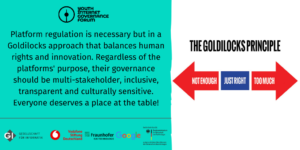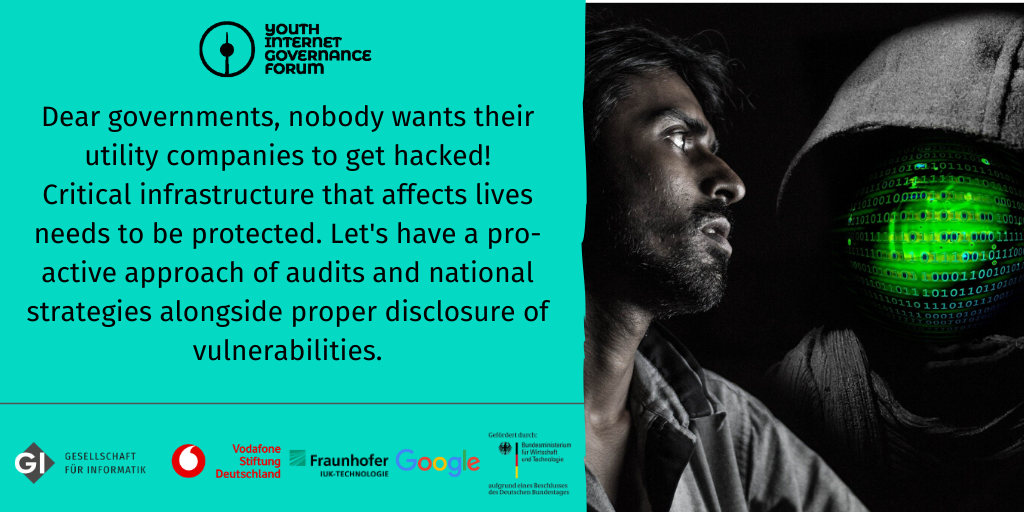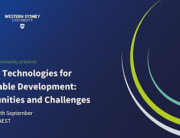Whose Internet is this? And how can we design it together for the benefit of all?
Questions about participation and the economic, ecological and social sustainability of the Internet are mobilising young people all over the world. They also play a central role at the Internet Governance Forum of the United Nations (IGF), which is taking place for the first time in Germany, and the preceding Youth Summit.
On 24 November 2019, 100 young people between 18 and 30 years old from almost 40 countries active in the field of network policy met in Berlin. The aim of the summit was to elaborate on the youth’s demands on politics – the positions of a generation on digital policy issues relating to education, sustainability, fundamental rights and public goods. Over the last three months, more than 100 participants have worked on this in webinars. In the context of the Youth Summit IGF on Sunday, finally 11 demands were finally co-ordinated and presented.
Critical infrastructure
“Dear governments, nobody wants their care infrastructure to be hacked! Critical infrastructures that affect people’s lives need to be protected, we suggest a proactive approach to evaluation and strategic direction, and transparency on vulnerabilities.”
Artificial Intelligence (AI)
“Machine decision-making needs to be guided by human decisions to ensure explicitness, inclusion, privacy, accountability, and the right to object. Humans must intervene whenever AI-based decisions have negative consequences for the individual, especially vulnerable groups such as youth. “
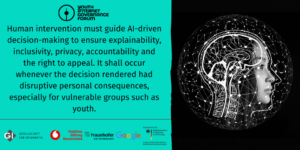
Child Protection
“Protecting children in the online space is a priority for society as a whole! To protect, we need a universal approach. Collaboration among all stakeholders is crucial to designing effective strategies: parents, health and education professionals and children themselves need to be involved.”
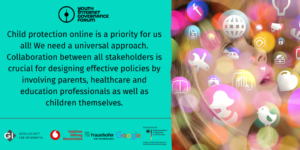
Platform Transparency
“Companies should be transparent about their algorithms, data, content, rules and decisions to maintain trust and responsibility, and independent regulators should make governments play an active role in law enforcement, with users and independent researchers having easy access to the data they need.”
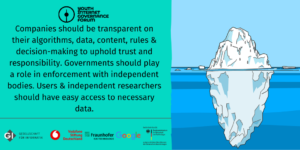
Cyber Security
“Given that laws have a direct impact on our daily lives, we demand new, dynamic cybersecurity strategies, with multi-stakeholder approaches that include transparent, adaptive, and people-centred policies. Technological changes demand legal adjustments.”
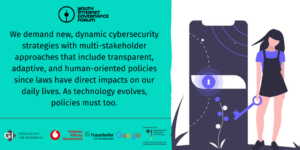
Net Neutrality
“True digital inclusion requires net neutrality and unrestricted Internet access. To achieve the latter, governments, businesses and ISPs must not control data flow or prioritize services – and must provide transparency.”
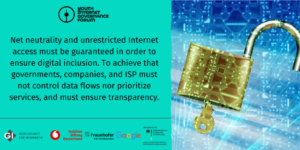
Disinformation
“We are calling for platforms to use multi-stakeholder bodies to remove inappropriate data points from micro-targeting used for political advertising, thereby reducing the risk of disinformation on the network.”
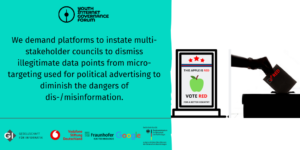
Youth Participation
“Young people are faced with various obstacles in the process of participation, and it is the responsibility of decision-makers from all stakeholders to overcome these obstacles and to introduce various, even under-represented, young people in a meaningful and measurable way – by means of KPIs – into all processes Network policy.”
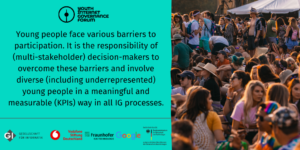
Digital Education
“Governments, businesses, civil society and the technical community must strive to integrate universal ethical principles and standards and develop a common framework for digital education.”
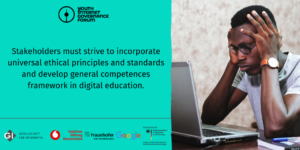
Facial Recognition
“No facial recognition without transparency and accountability. There are risks and prejudices, and they must be known!”
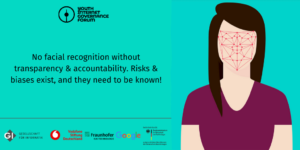
Platform Regulation
“Platform regulation is necessary, but in a Goldilocks approach that reconciles human rights and innovation. Regardless of the purpose of the platform, its regulation should be based on the principle of inclusion and a multi-stakeholder approach. It should be transparent and culturally sensitive in this sense. Everyone has earned a place at the table of platform regulation!”
